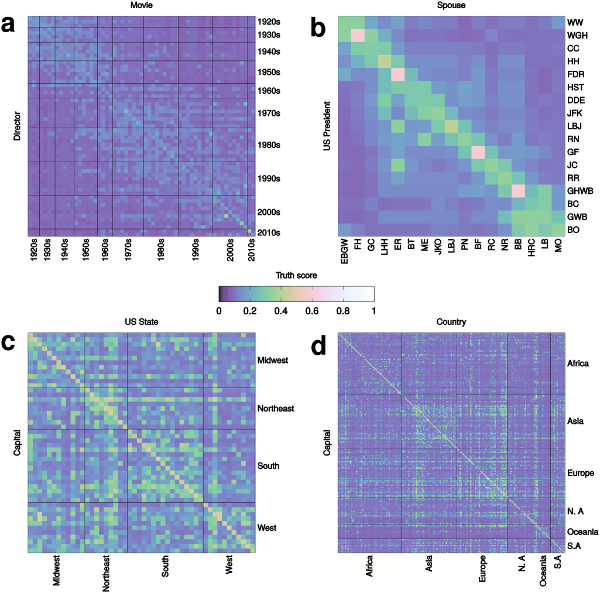Towards computational fact checking
Traditional fact checking by expert journalists cannot keep up with the enormous volume of information that is now generated online. Computational fact checking may significantly enhance our ability to evaluate the veracity of dubious information. In our paper, Computational Fact Checking from Knowledge Networks, we showed that the complexities of human fact checking can be approximated quite well by finding the shortest path between concept nodes under properly defined semantic proximity metrics on knowledge graphs. We evaluate this approach by examining tens of thousands of claims related to history, entertainment, geography, and biographical information using a public knowledge graph extracted from Wikipedia. Statements independently known to be true consistently receive higher support via our method than do false ones. This work received coverage in Nature, The Wall Street Journal, Wired, Motherboard, Pacific Standard, Fusion, Gizmodo, Spiegel, Deutschlandfunk, Il Sole 24 Ore, Publico, etc.

